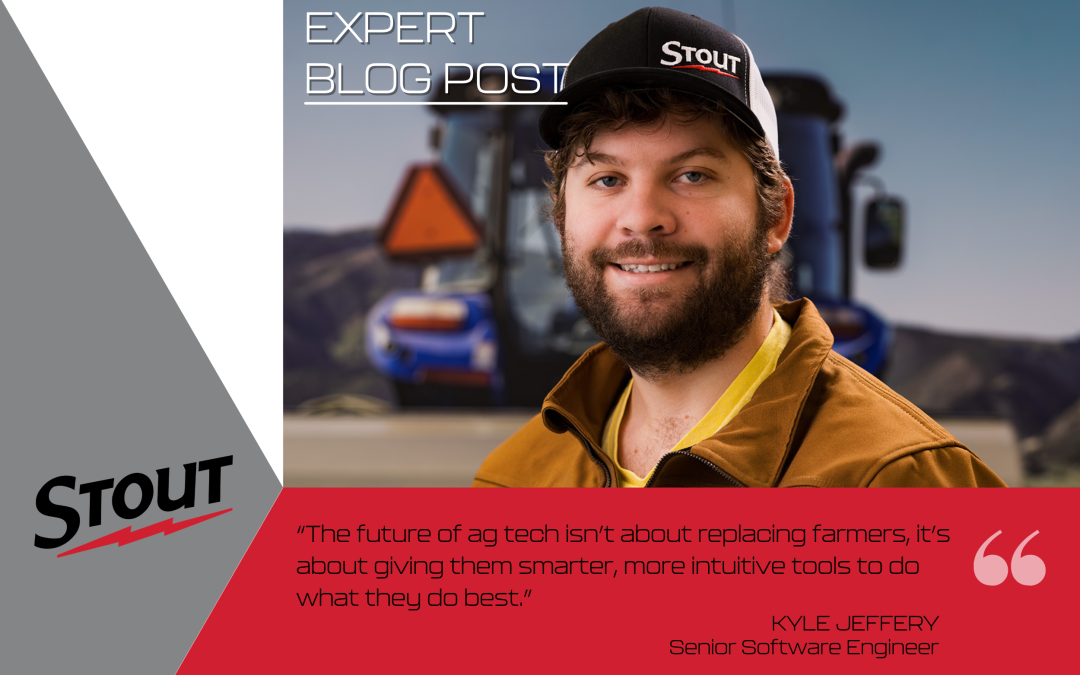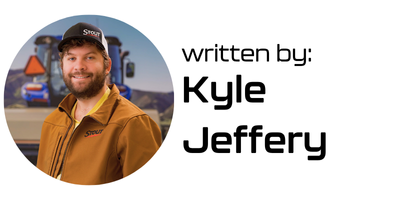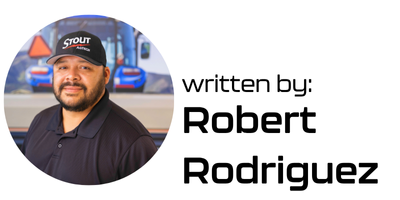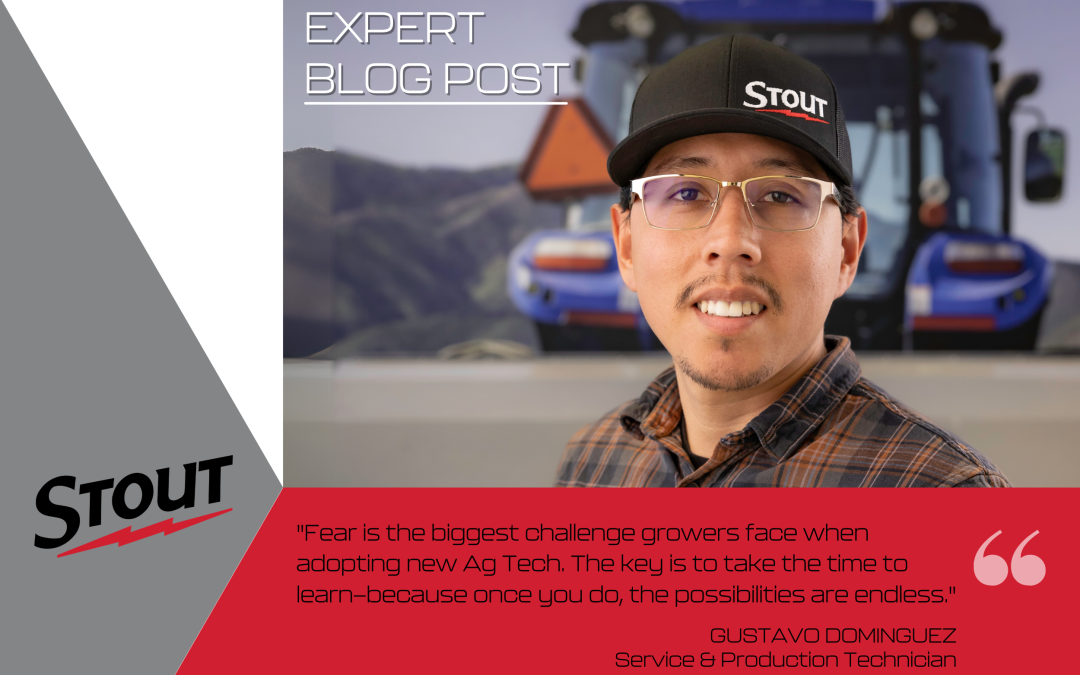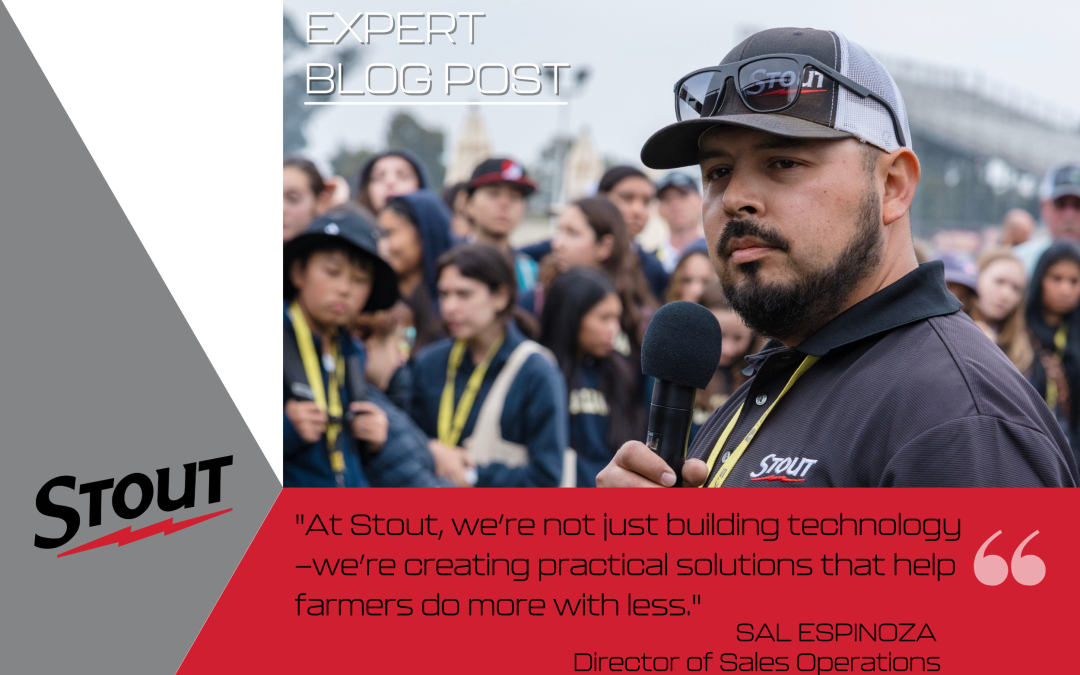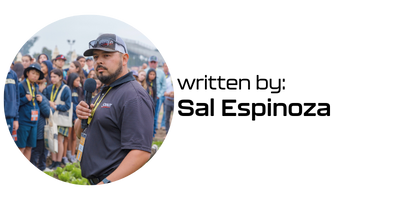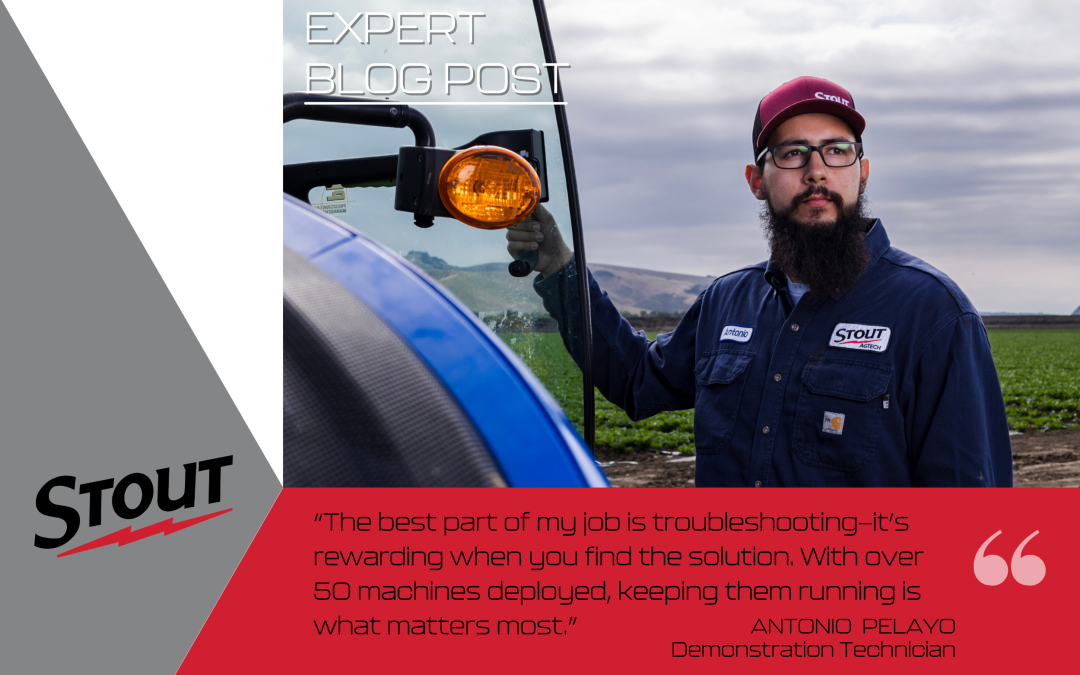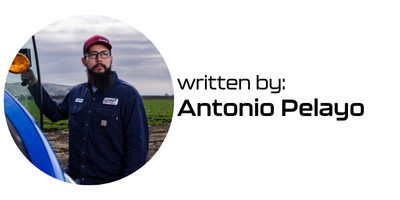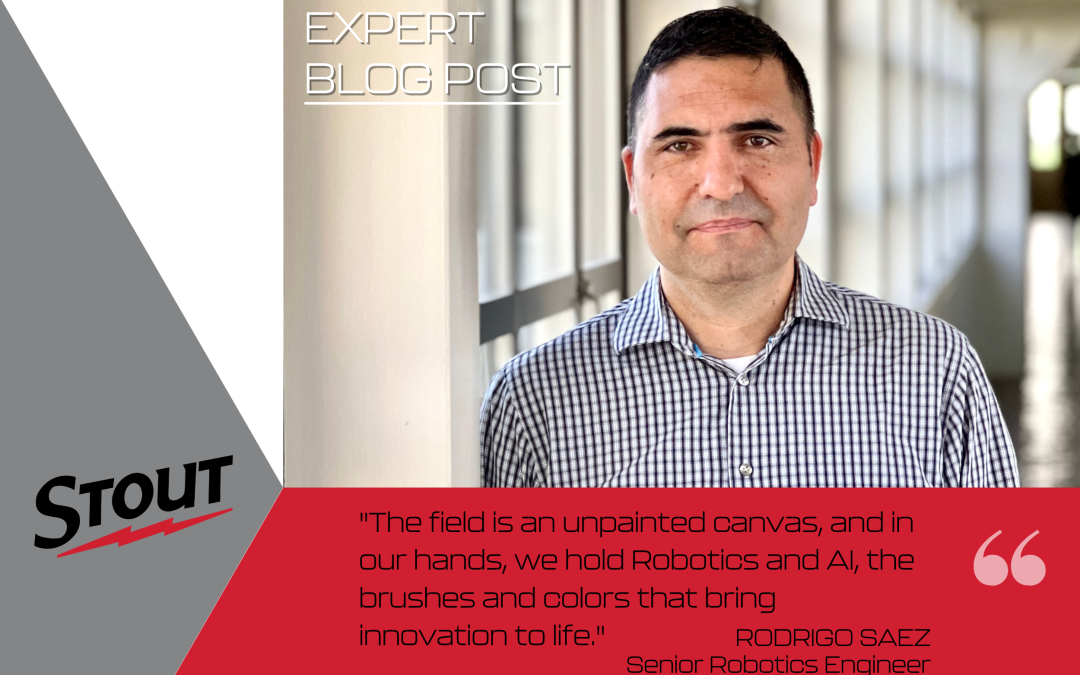
Rodrigo Saez on Robotics, Innovation, and the Future of Smart Farming
My passion for robotics began when I was 12. I took apart an old AM radio and turned it into an alarm system connected to my Atari 800XL (home computer). It was a small experiment, but it changed everything. It sparked a lifelong fascination with how machines can extend human capability.
As an engineer, I’ve always been drawn to solving problems that matter. Early in my career, I developed the country of Chile’s first road and route map using DGPS systems, two years before Google Maps came along. Later, I joined Independent Driving Systems in Texas, where I helped robotize and automate over 300 vehicles, restoring mobility for disabled individuals and veterans. I also contributed to the U.S. Department of Defense’s Unmanned Convoys Project, now known as Automating Army Convoys.
Today, I’m proud to be part of Stout as a Senior Robotics Engineer. In just over a year, I’ve had the opportunity to work with a team that’s as passionate and curious as I am. What drew me to Stout was the unique blend of mechanical precision, artificial intelligence, and a culture of relentless innovation. Every day, we’re pushing boundaries, whether it’s building digital crops with LED arrays to simulate real field conditions or developing vision programs that analyze color and assess plant health. At Stout, robotics and AI are our paintbrushes, and the field is our canvas.
When it comes to agricultural robotics, precision is everything. Our Smart Cultivator integrates LiDAR, computer vision, and GPS geo-referencing to operate with millimeter-level accuracy. These systems collect and process real-time data that feeds our AI, ensuring every movement is deliberate and efficient. While developing our Smart Rate Fertilizer (SRF) system, we built custom mass flow sensors, high-frequency pressure monitors, and laminar flow velocity sensors, tools that didn’t exist until we created them. That’s the Stout philosophy: if it doesn’t exist, we invent it.
One of my favorite projects was also one of the simplest. I designed a simulator using LEDs to replicate the motion of a lettuce field. It saved us countless hours in field testing and reminded me that creativity can be just as powerful as complexity.
To me, robotics is all about connection, how sensors, processors, and control loops communicate, much like our nervous system connects to our brain. A system can only move and “think” correctly when those control loops are perfectly tuned.
Agriculture presents unique challenges for robotics. No two fields are the same. Soil texture, light, and weather are constantly changing. Our machines need to adapt just like humans do. What excites me most about the next decade is how far we’ll take that adaptability. Artificial Intelligence has only recently become mainstream, and the next leap, Artificial General Intelligence (AGI), could arrive as soon as 2026 or 2027. That shift could revolutionize agriculture, enabling autonomous swarms of self-sustaining machines to manage fields without human intervention.
Even today, robotics plays a bigger role in farming than most people realize. Data once used on Wall Street is now being applied to agriculture through metadata analysis. At Stout, our cameras and sensors process billions of data points to track everything from plant health to yield projections. We’re turning raw information into actionable insights that help growers make faster, smarter decisions.
Robotics and AI are just tools. It’s your imagination that gives them purpose. Agriculture still has countless problems to solve, and it will take bold, creative minds to do it. The fusion of robotics, AI, and human ingenuity will define the next era of farming, and I’m honored to be part of that journey.

